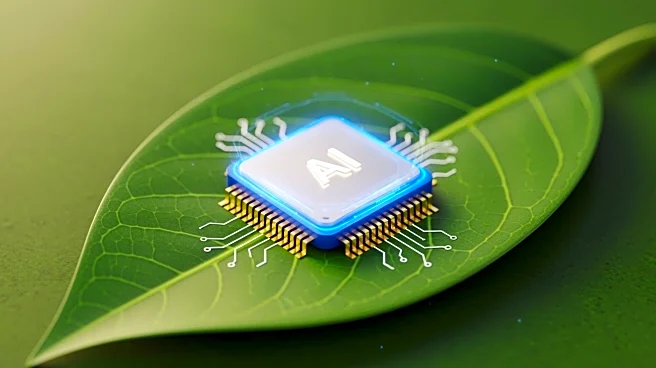What's Happening?
Recent funding rounds have highlighted the growing impact of AI startups in various sectors, including healthcare and agriculture. Lila Sciences, a Boston-based company, raised $115 million to expand its
'AI Science Factories,' which automate laboratory experiments using robotics and sensors. This innovation aims to accelerate scientific discovery by continuously designing and testing new hypotheses, thereby reducing costs and increasing research throughput. In the medical field, CoMind, a London-based startup, secured $102.5 million to develop a non-invasive brain monitoring device that uses AI to measure cerebral blood flow and intracranial pressure. This technology promises faster diagnostics and improved patient outcomes. Meanwhile, Ecorobotix, a Swiss agricultural robotics firm, raised $150 million to advance its AI-driven vision systems that precisely target weeds, significantly reducing herbicide use. These developments underscore the transformative potential of AI in enhancing efficiency and sustainability across industries.
Why It's Important?
The advancements in AI technology are poised to significantly impact various sectors by improving efficiency and reducing costs. In healthcare, AI-driven solutions like CoMind's brain monitoring device could revolutionize patient care by providing real-time data, leading to quicker diagnoses and better treatment outcomes. This could reduce the need for invasive procedures and lower healthcare costs. In agriculture, Ecorobotix's precision spraying technology offers environmental benefits by minimizing chemical usage, which is crucial for sustainable farming practices. These innovations not only promise economic gains but also address critical challenges such as resource management and environmental conservation. As AI continues to evolve, its integration into traditional industries could lead to substantial improvements in productivity and sustainability.
What's Next?
The continued investment in AI startups suggests a growing confidence in their ability to deliver tangible benefits across various sectors. For Lila Sciences, the expansion of its lab network and entry into new fields like materials science and biotechnology could lead to breakthroughs in scientific research. CoMind's ongoing trials in the U.S. are crucial for its FDA approval process, which could pave the way for widespread adoption of its brain monitoring technology in hospitals. Ecorobotix's expansion into North America indicates a strategic move to capture a larger market share and further develop its crop-specific recognition models. As these companies progress, their innovations could set new standards in their respective industries, driving further investment and development in AI technologies.
Beyond the Headlines
The ethical implications of AI in healthcare and agriculture are significant. In healthcare, the use of AI for monitoring and diagnostics raises questions about data privacy and the potential for algorithmic bias. Ensuring that AI systems are transparent and equitable is crucial for gaining public trust. In agriculture, the reduction of chemical inputs through precision technology aligns with global sustainability goals, but it also necessitates a shift in traditional farming practices. As AI continues to integrate into these sectors, stakeholders must address these ethical considerations to ensure responsible and beneficial use of technology.











